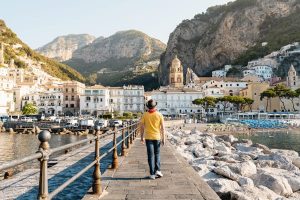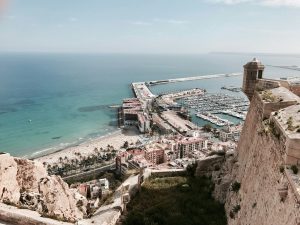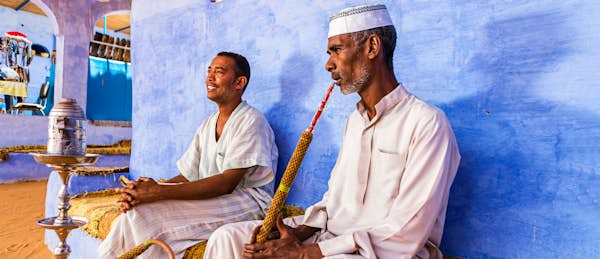
From diving the Red Sea’s crystal blue waters and stargazing amid the vastness of the desert to floating down the Nile River and standing in awestruck wonder before the ruins of one of the world’s most ancient civilizations… When it comes to travel experiences, Egypt is a destination that leaves visitors spoiled for choice.
With so much to see, the struggle for many visitors is just where to begin – as always, we’re happy to help! Here is our pick of the 8 best places to visit in Egypt.
Get more travel inspiration, tips and exclusive offers sent straight to your inbox with our weekly newsletter.
1. Cairo
Egypt’s bustling capital city is layered with cultural, religious, architectural and even culinary history. Its wonders stretch far beyond the walls of its famous museums. You can take in centuries worth of sights just by walking down the city streets, and discover untapped wonders just by saying hello to a stranger. Then there are the Pyramids of Giza, truly a wonder of the world.
At the epicenter of history in the core of the city is Islamic Cairo, the city’s most atmospheric quarter. Just grab your camera and venture down its vibrant alleyways. Take in the views from the Citadel and the old city gates – known as Bab Zuweila, Bab al-Futuh and Bab an Nasr – and admire the intricate details of the area’s stunning mosques. The ancient Mosque of Muhammad Ali, Ibn Tulun Mosque and Al-Hakim Mosque are particularly incredible. Islamic Cairo is also home to monument-lined Muizz Street and Khan El-Khalili bazaar – great spots to grab some souvenirs (if your haggling skills are up to the task).
A more under-the-radar-spot is Coptic Cairo, home to the Coptic Museum, the Hanging Church, the towers of the vanished Babylon fortress – the focal point of Egypt’s tiny Christian minority since the first century CE.
Local tip: By night, Cairo transforms thanks to its buzzing nightlife scene – sip a drink in historic downtown bars or take in live performances at hip clubs and art spaces.
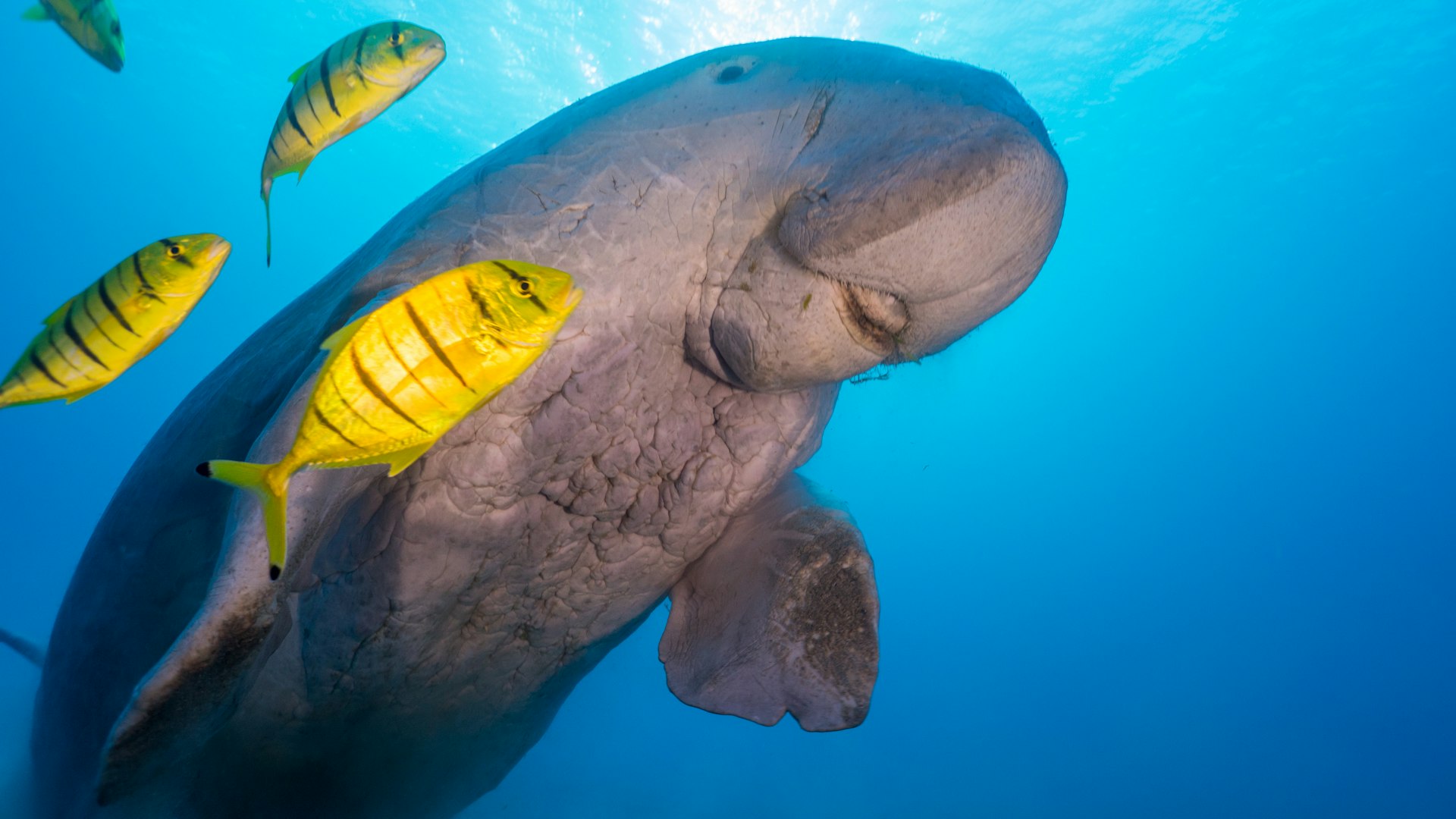 Spot dugongs in Marsa Alam’s beautiful blue waters ©Verde Massimo/Shutterstock
Spot dugongs in Marsa Alam’s beautiful blue waters ©Verde Massimo/Shutterstock
2. Marsa Alam
Life is definitely better when you’re scuba diving through colorful corals and swimming with dolphins, dugongs and sea turtles in Marsa Alam’s beautiful blue waters. A serene escape on the western shore of the Red Sea, Marsa Alam is one of the top spots in Egypt for underwater escapes. Popular dive spots include the Elphinstone reef and Abu Dabbab, one of the world’s top beaches for snorkeling.
For land-based adventures, head to Wadi el Gemal National Park, where you can lay back by the water at Hankorab Beach or safari, hike or bike through rugged, mountainous terrain. Keep an eye out for camels at Sharm El Luli Beach or take in the beautiful scenery at the resort town of Qulaan.
To learn about Marsa Alam’s local Bedouin community, visit the Ababda House Cultural Museum or have dinner and an aromatic cup of Jebena coffee with the locals.
Detour: If you’re looking for interesting souvenirs, head to Ghosoun and Hamata and meet local tribeswomen making unique hand-woven crafts and jewelry (each tribe has its own unique patterns and styles).
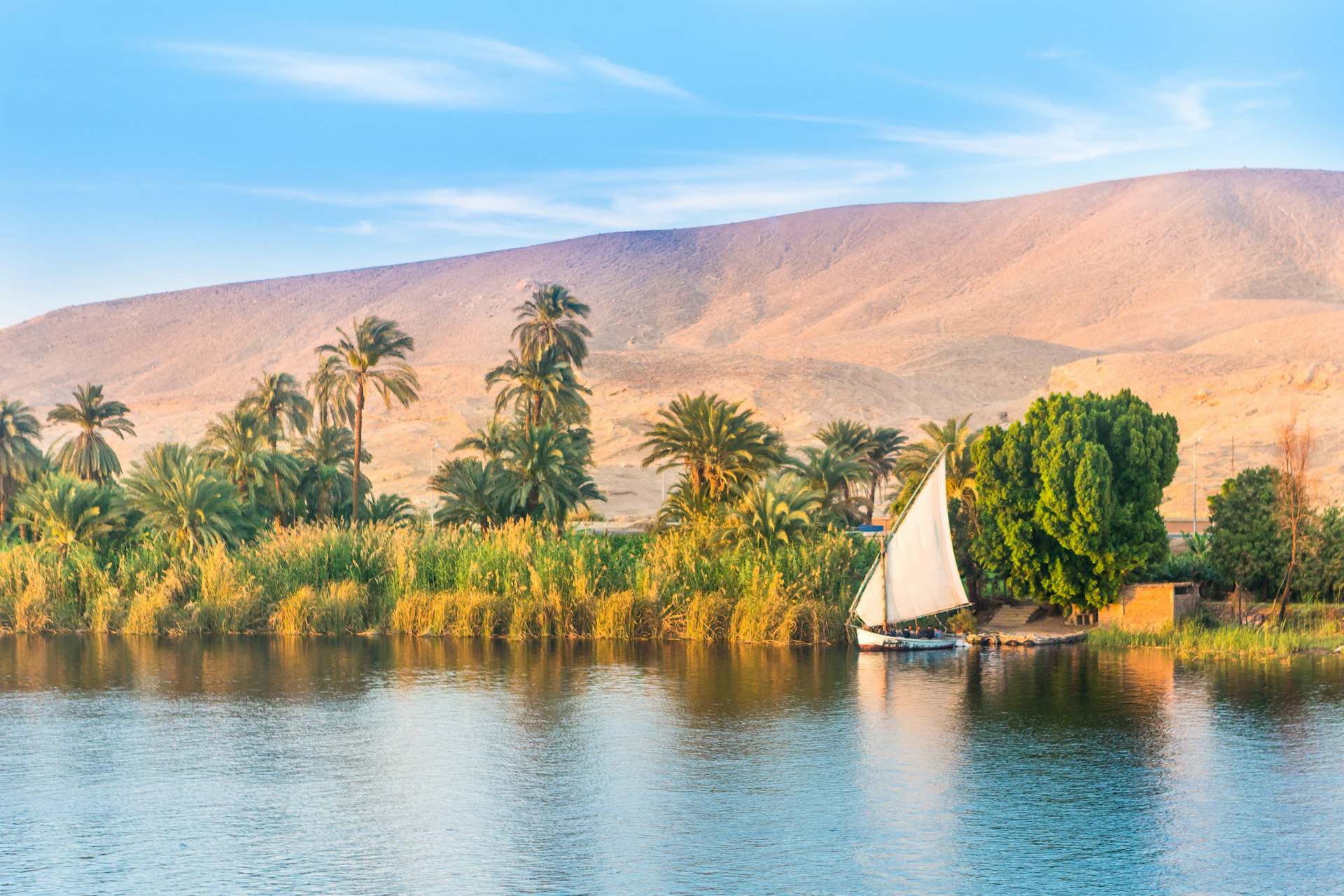 Sail along the river Nile in a traditional felucca © Getty Images / iStockphoto
Sail along the river Nile in a traditional felucca © Getty Images / iStockphoto
3. Luxor
The site of the magnificent ancient city of Thebes, Luxor is said to preserve a third of the world’s ancient monuments between the pillars of its majestic temples. Dubbed the world’s greatest open-air museum, the capital of Upper Egypt recently celebrated the grand reopening of the 2.7km (1.7 mile) Avenue of the Sphinxes, an ancient thoroughfare connecting Karnak Temple, home of the famed Temple of Amun-Ra, and the impressively preserved Luxor Temple.
A sunrise hot air balloon ride will give you a captivating bird’s-eye view of this city of ancient wonders. Once you’re back on the ground, head to Hatshepsut Temple and Medinet Habu – two massive ancient architectural wonders that feature prominently on travelers’ Instagram feeds – and cross the river to the Valley of the Kings, the royal burial site of Tutankhamun, Seti I and Ramses II.
4. Aswan
Palm trees and patches of greenery cling to the dusty riverbanks of Aswan, one of Egypt’s most tranquil locations, celebrated for the unmatched hospitality of its Nubian community. Sail your way to any of the 20 river islands accessible by felucca, the traditional wooden sailboats that ply the river Nile.
To learn more about Nubian culture, visit the island of Gharb Soheil or stroll around the colorful streets of Aswan’s Nubian Village. Sample homestyle veggie-based or chicken tagines in local cafes, or purchase aromatic spices from the vibrantly colorful Aswan spice market.
Aswan is famed for its stunning sunsets, which you can watch from any of the islands or while sailing the Nile on a felucca. Another top spot for watching the sunset is the restaurant at the iconic Sofitel Legend Old Cataract where English author Agatha Christie penned her famous mystery, Death on the Nile.
Local tip: If you’re willing to wake up at 3am for the journey south across the desert, a day trip to Abu Simbel is a history buff’s dream; the whole temple complex was moved when the valley was flooded by the Aswan High Dam in the 1960s. If you’d rather let the sun wake up before you, explore Aswan’s Temple of Isis, also moved from its original location on Philae Island.
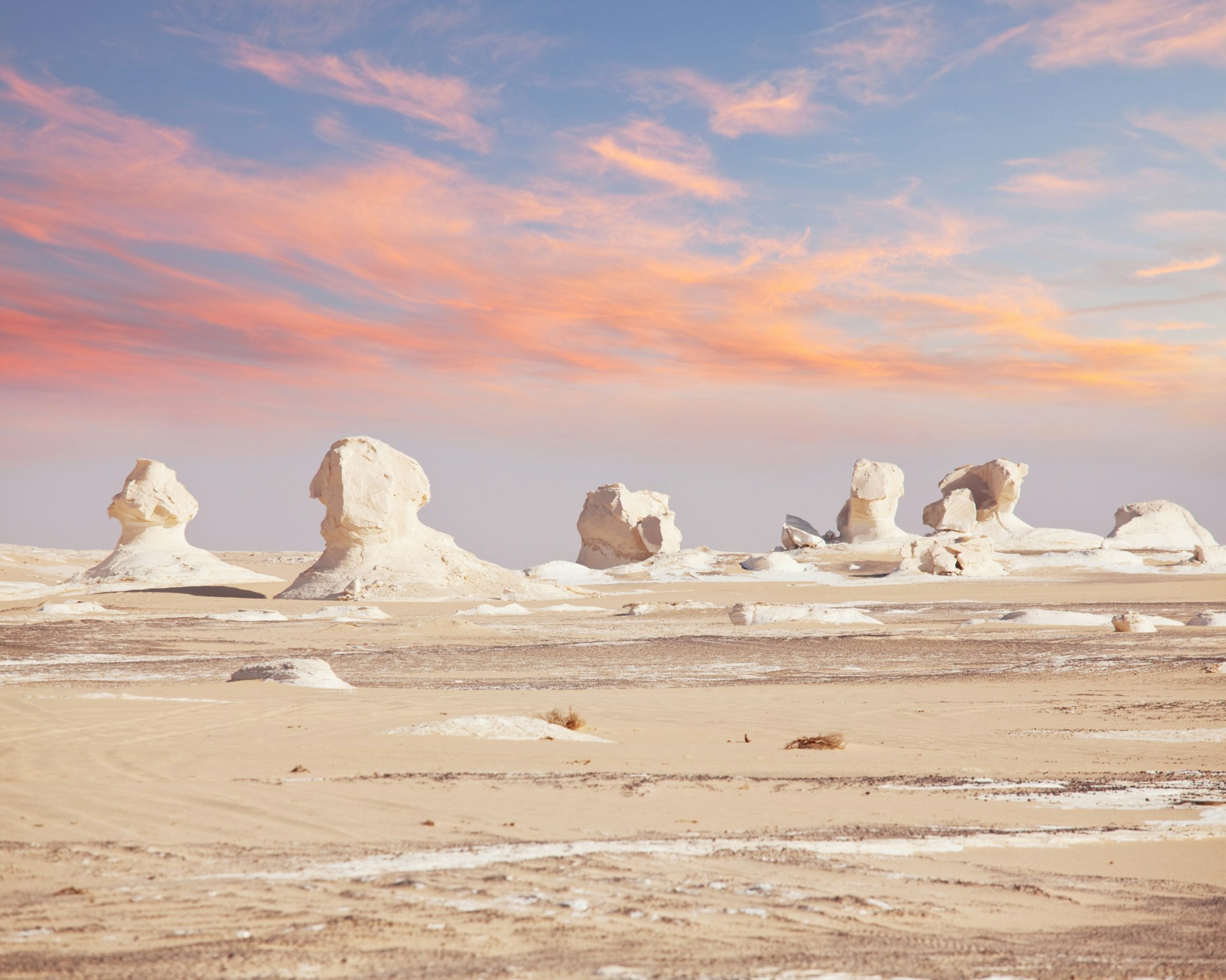 Surreal rock formations in the other-worldly White Desert © Galyna Andrushko / Shutterstock
Surreal rock formations in the other-worldly White Desert © Galyna Andrushko / Shutterstock
5. Black and White Deserts
The appeal of Egypt’s Black and White Deserts is quite literally black and white. These monochrome landscapes are like something out of a sci-fi movie, but the surreal scenery is a product of natural geology – the White Desert’s uniquely shaped limestone rock formations give the illusion of a snowscape, while the Black Desert features small black volcanic stones scattered over bright orange-colored sand.
A visit to either of these desert areas is perfect for a stargazing camping trip – it’s the ultimate escape for anyone who’s had their fill of temples and big city traffic. The White Desert and Black Desert lie just south of the Bahariya Oasis, in Egypt’s Western Desert, which is accessible by bus from Cairo.
Local tip: While you’re out there, make sure you visit Crystal Mountain, a natural rock arch surrounded by glittering walls of quartz crystals, and Djara Cave, one of the country’s most impressive, stalactite-filled caves. You’ll need to crouch down to enter the cave, but once inside, the ceiling looks like it’s coated in giant icicles.
6. Egypt’s Mediterranean Coast
Egypt’s northern shoreline – affectionately known as El Sahel, meaning “The Coast” – is the ultimate summer escape on the shores of the Mediterranean. This sun-kissed coastal strip comes alive from May to September every year, drawing hordes of beach bums by day, and a veritable who’s who of Egypt’s party people by night.
The strip is lined with luxurious hotels and resorts, upscale residential compounds and world-class restaurants such as The Smokery Beach at Stella di Mare and Kiki’s Beach at Hacienda White. The shores of Sahel are where you’ll find most of Cairo’s millennial and Gen Z crowd on Egypt’s hottest summer days.
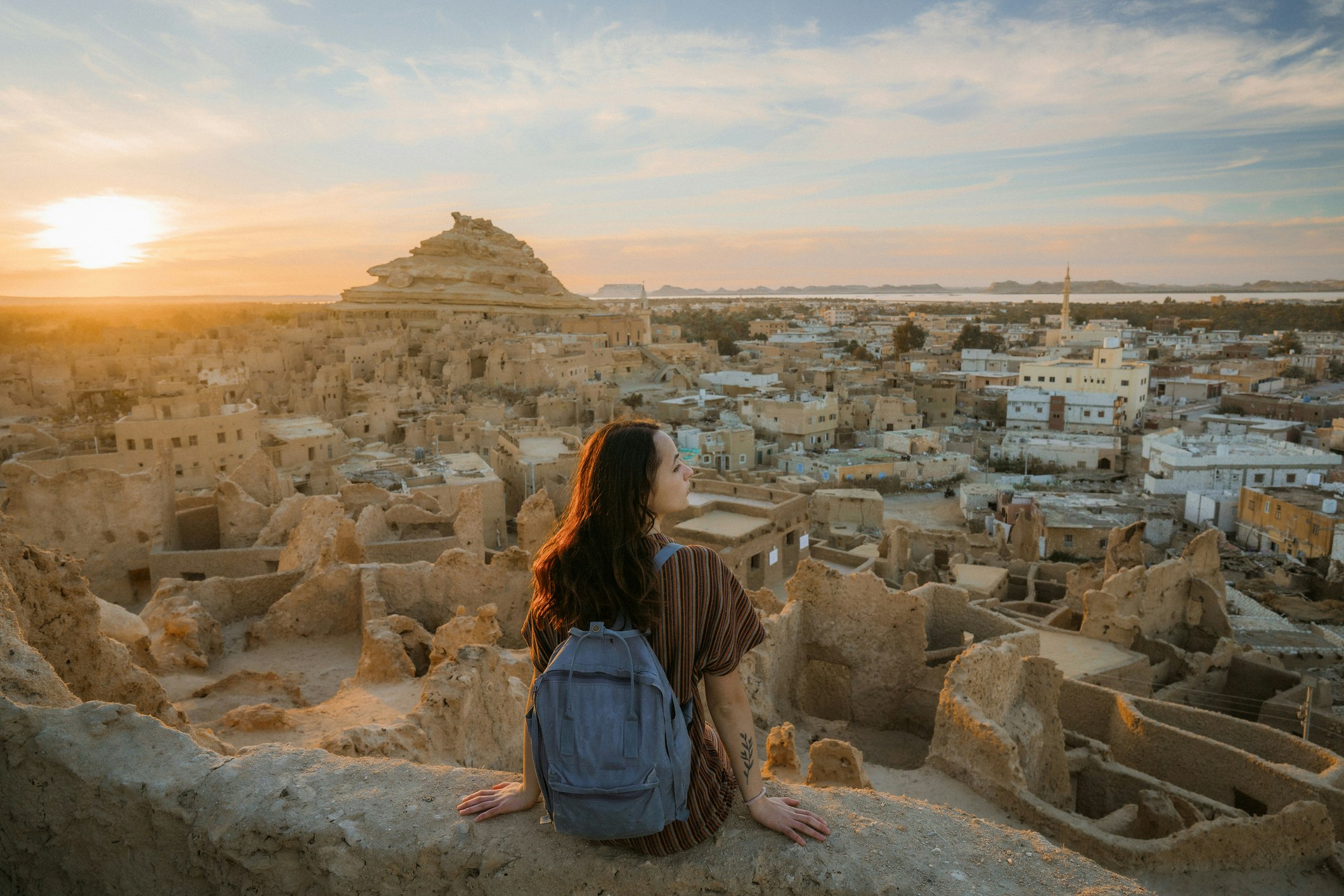 Woman looking at scenic view of Siwa oasis at sunset © Oleh_Slobodeniuk / Getty
Woman looking at scenic view of Siwa oasis at sunset © Oleh_Slobodeniuk / Getty
7. Siwa oasis
Far removed from the mayhem of Egypt’s big cities, this little gem of an oasis is home to Siwan Bedouin people who follow a largely traditional way of life, and the town has thus far been only lightly touched by tourism. The locals are Amazigh tribespeople, who have managed to preserve much of their linguistic and cultural heritage thanks to the isolated location of their oasis home.
Siwa is often described as “the Sunset Oasis”, and its sunsets are indeed unparalleled in Egypt. Whether you find a vantage point atop Dakrour Mountain or the ruined Shali Fortress, or take in the scenery and serenity of Taghaghien Island or Fatnas Island, you’re promised an unforgettable sunset. You can also expect a lot of mosquitos, so don’t forget your repellent.
Siwa is a prime destination for tourists looking to escape the winter chill and it’s a leaping off point for the Great Sand Sea (the world’s third-largest dune field), swimmable hot and cold springs and crystal clear salt lakes where you can float effortlessly, supported by the saline waters.
Siwa is also famed for producing some of the country’s best dates, and you may be able to sample straight from the tree – just ask locals first. Every November, Siwa holds the Siwi Palm Date Festival.
Local tip: Try the local Abu Mardem chicken or lamb – a spiced dish that’s marinated for eight hours before being put into an iron pot and buried under the sand to cook.
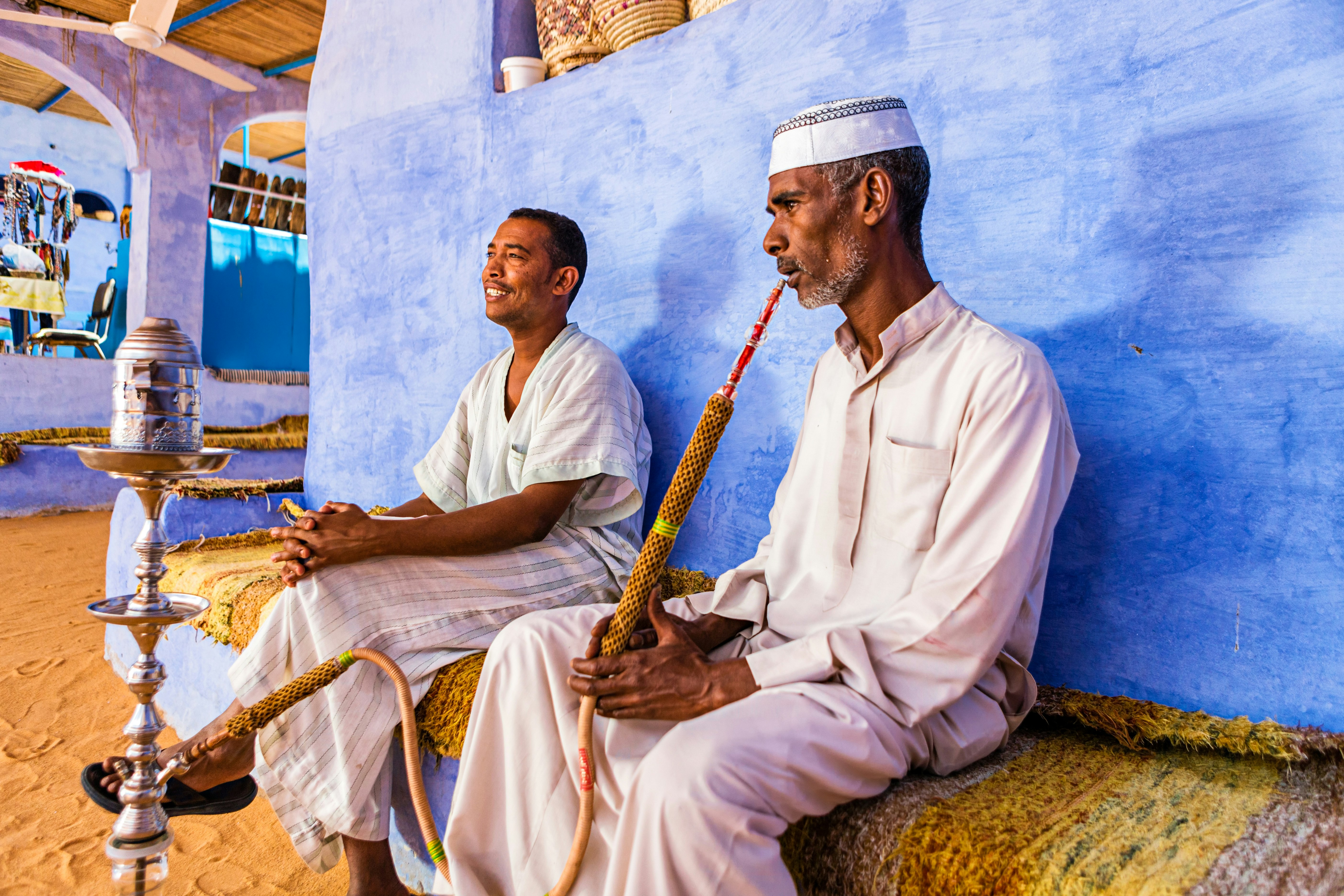 A trip to Egypt is as much about its people as its monuments © Hady Nyah / Getty Images
A trip to Egypt is as much about its people as its monuments © Hady Nyah / Getty Images
8. El Gouna
It’s always sunny in this fully-integrated little town along the pristine shoreline of the Red Sea, just north of Hurghada. El Gouna has become the base for a multinational community of digital nomads, young families, and expats convinced that life is better by the water.
El Gouna has great aquatic activities, and lots of options for hiking and safaris in the surrounding desert landscapes, appealing to younger travelers. It also has bougie boutiques, cultural events and top-tier culinary experiences thanks to its many upscale restaurants, appealing to an older set.
With its world-class services, restaurants and living spaces, it’s a great place to visit but also a fine place to set up your seaside office. There are plenty of coworking spaces and solid wifi connections, and lots of ways to keep busy outside of work hours – why work from home when you can work from El Gouna?

